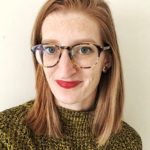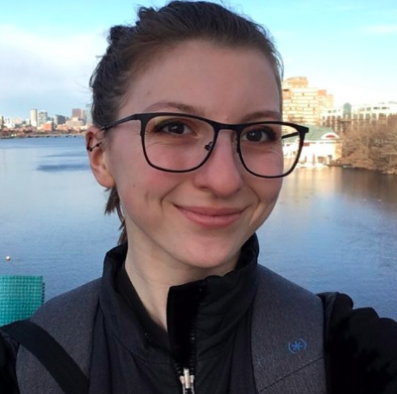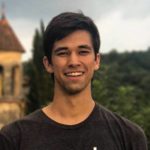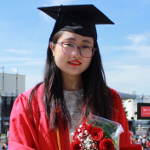The MCLE Project
Designing Mathematically Captivating Learning Experiences
THE STUDY
This NSF-funded CAREER research project (2017-2023) explored how secondary mathematics teachers can plan and enact learning experiences that spur student curiosity, captivate students with complex mathematical content, and compel students to engage and persevere (referred to as “mathematically captivating learning experiences” or “MCLEs”). This study was important because of persistent disinterest by secondary students in mathematics in the United States. This study examined how high school teachers can design lessons so that mathematical content itself is the source of student intrigue, pursuit, and passion. To do this, the content within mathematical lessons (both planned and enacted) was framed as mathematical stories and the felt tension between how information is revealed and withheld from students as the mathematical story unfolds is framed as its mathematical plot. The Mathematical Story Framework (Dietiker, 2013, 2015) foregrounds both the coherence (does the story make sense?) and aesthetic (does it stimulate anticipation for what is to come, and if so, how?) dimensions of mathematics lessons. The project generated principles for lesson design usable by teachers in other settings and exemplar lessons that can be shared.
PUBLICATIONS AND PRESENTATIONS
Read about our published and presented work.
LESSON MATERIALS
View materials designed by the MCLE team for high school students in our drive.
THE RESEARCH TEAM

Leslie Dietiker, dietiker@bu.edu, is an associate professor in mathematics education at Boston University and is a former high school math teacher and curriculum writer. She is interested in learning how to improve the quality and structure of mathematics curriculum as found in textbooks, lesson plans, and enacted in classrooms. You can learn more about her research, teaching, and curriculum here.
 Erin Barno, ebarno@bu.edu, is a doctoral student at Boston University studying mathematics education, with an interest in culturally responsive pedagogy and mathematical identity. Previously she taught middle and high school math in Boston and in Cambridge, MA.
Erin Barno, ebarno@bu.edu, is a doctoral student at Boston University studying mathematics education, with an interest in culturally responsive pedagogy and mathematical identity. Previously she taught middle and high school math in Boston and in Cambridge, MA.
 Brit Claiborne-Naranjo, bcn@bu.edu, is a doctoral student at Boston University studying mathematics education, with a research interest in developing teacher candidates’ abilities as activists for social change within their classrooms and community. Before joining BU Wheelock, Brit was a high school mathematics teacher in Chicago-area public schools.
Brit Claiborne-Naranjo, bcn@bu.edu, is a doctoral student at Boston University studying mathematics education, with a research interest in developing teacher candidates’ abilities as activists for social change within their classrooms and community. Before joining BU Wheelock, Brit was a high school mathematics teacher in Chicago-area public schools.
Past MCLE Team Members

Rashmi Singh, rashmis@usc.edu, was on this project as a postdoctoral research associate. She now is a new faculty member at Appalacian State University in North Carolina. Her primary research interest is in probing students’ conception in different areas of K-12 mathematics and the factors (standards, instruction, lesson design, curriculum materials etc.) that affect the development of understanding in students. She has taught high school and college mathematics in India and the US.

Meghan Riling, mriling@bu.edu, was a PhD student at Boston University focusing on mathematics education. She now is a clinical assistant professor of Mathematics Education at Vanderbilt University. Her primary research interests involve student mathematical creativity, especially in terms of its social and aesthetic components. Previously, she was a math and computer science teacher in the Boston area.

Rae Starks Chaves, RNStarks@bu.edu, was a doctoral candidate in Curriculum and Teaching, with a focus in Mathematics Education, at Boston University. She is interested in mathematics teacher education, particularly in initial teacher education, and in the role of mathematics content knowledge in high quality teaching. Previously, she was a secondary mathematics teacher in Canada, her home country.

Hector Nieves, hnieves@bu.edu, was a doctoral student at Boston University studying mathematics education, with an interest in the effects of learning communities in math classrooms on students’ mathematical self-identity. Previously, he taught math in Los Angeles at the middle and high school level.

Aamina Adil, aamina@bu.edu, was a Masters student at Boston University studying mathematics education, with an interest to create math classrooms fun and engaging through games and puzzles. Previously, she taught math to college students in Pakistan.

Kihoon “Luke” Lee, klukelee@bu.edu, was a Master’s student at Boston University studying mathematics education with an interest in how one could work with individuals (teachers and students) who are struggling with math anxiety. Kihoon is now a doctoral student at Columbia University. He also has a passion for curriculum design and analysis, hoping to conduct a comparative study regarding curriculum structure in Korea and the United States one day.

Sarina Simon, simons21@bu.edu, was an undergraduate senior and then a masters student at Boston University studying Mathematics Education with an interest in student engagement in the classroom. Using the takeaways from the MCLE project and her background in Computer Science, she hopes to create an inviting and exciting classroom environment conducive to learning.
 Anna Moss, amo88@bu.edu, was a Masters student at Boston University. After studying at NYU, she began working as a mathematics and physics teacher at the Commonwealth School in Boston. She joined the MCLE project during her sabbatical, which was focused on working to better understand how to create lessons that allow for curiosity and discovery for her students of any education background.
Anna Moss, amo88@bu.edu, was a Masters student at Boston University. After studying at NYU, she began working as a mathematics and physics teacher at the Commonwealth School in Boston. She joined the MCLE project during her sabbatical, which was focused on working to better understand how to create lessons that allow for curiosity and discovery for her students of any education background.

Kaitlyn Gibson, kgibson1@bu.edu, was an undergraduate student studying secondary mathematics education at Boston University. She grew up in the Boston area and fell in love with mathematics during high school. This spurred her interest in teaching, and now she wants to make sure that other students can have a chance to fall in love with mathematics, too.

Sadiki Lewis, sadikil@bu.edu, was a masters student at Boston University who attained his Master of Arts in Teaching with a focus on mathematics education. After studying math in undergrad, he fell in love working with students and pursuing a teaching degree after mentoring and tutoring high school students in math. He wants to better understand how to deliver challenging, relatable curriculum for students historically marginalized.

Ildar Tukhtakhunov, ildart@bu.edu, was an undergraduate student studying for his Math Education B.S. at Boston University. After studying in three different education systems in two countries, he wants to better understand curriculum and school management. His interest in mathematics came about after seeing the difference between Soviet and American-style math teaching.

Ci Ren, ciren@bu.edu, received her Bachelors degree in mathematics at Boston University in January 2018. She is from Qitaihe, Heilongjiang Province, Northeast China. She calls herself a passionate dreamer who does what she loves and loves what she does. With passion in curriculum and teaching, she is currently attending grad school in education to continue pursuing her dream.